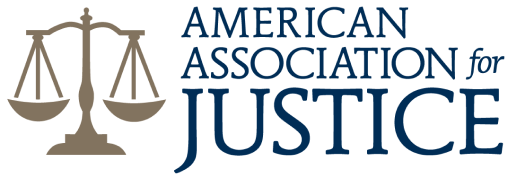We are trial lawyers who specialize in specific types of inheritance theft. Whether it is manipulating someone before death, theft, or outright forgery of a will, we have strategies to protect and secure what is rightfully yours. We are dedicated to providing tools and information relating to your rights, specifically dealing with wills that defraud. When lawsuits involve large sums of money or property a trial lawyer is essential to the best outcome, specifically a trial lawyer that has experience in the law and procedure relating to wills and trusts.
Probate Litigation We Specialize In
It is not that uncommon that children of a deceased parent find out shortly following a parent’s death that their mother or father amended their trust shortly before they died and gave a large gift to a caretaker/caregiver, nurse, or other care provider.
This often comes as a shock to the family, considering that the amendment was executed during a time when their mother or father suffered from any one or a combination of the following factors:
- The parent was ill or suffered from a debilitating medical condition;
- The parent suffered from cognitive impairments such as dementia or Alzheimer’s disease;
- The parent suffered from memory loss;
- The parent had difficulty communicating with others;
- The parent lived alone and required assistance for daily living;
- The parent required companionship, housekeeping, shopping, cooking, and/or assistance with finances and required the hired help of others to accomplish these tasks.
Families confronted with this situation often do not have direct evidence that the caretaker/caregiver, nurse, or other care provider unduly influenced or coerced their mother or father into making changes to their estate plan. Without having direct evidence of any wrongdoing, are the gifts to caregivers/caretakers, nurses, or other care providers valid?
Fortunately for families, California has enacted laws that impose statutory presumptions that certain types of gifts are presumed to be the result of undue influence and fraud and, therefore, are invalid.
Let’s consider the impact of several important California Probate Code Sections.
California Probate Code Section 21380 states in part:
(a) A provision of an instrument making a donative transfer to any of the following persons is presumed to be the product of fraud or undue influence:
(3) care custodian of a transferor who is a dependent adult, but only if the instrument was executed during the period in which the care custodian provided services to the transferor or within 90 days before or after that period.
What does this section mean?
It means that a gift to a care custodian made in a will, trust, deed, or other writing that designates a care custodian as a beneficiary is presumed to be the product of fraud or undue influence if the person providing the gift is a dependent adult and the gift was made during a time the care custodian provided services or within 90 days before or after that period.
- Caretakers receive inheritance:
Caretakers are not allowed to receive money in a will under California law. If a caretaker receives financial compensation, land, property, or other types of assets under a will from someone they are caring for, a lawyer can step in and use the law to return the assets to the rightful person. This type of caretaking theft is discussed in more detail here.
- Forged Will:
A fake will, or a fake amendment to the real will, occurs more often than one would expect. However, it is not discussed publicly often, as these types of situations are often embarrassing and cause enormous tension in the family. These faked wills can be reversed through the courts.
- Destroyed Documents:
When a beneficiary to a will destroys a will, documents related to the will or an amendment to a will, the law classifies these actions as fraud. We represent the family members who have received nothing from the will, or after someone has passed away when they should have received an heir, beneficiary, or creditor, a contingency fee arrangement may work.
How Expensive Is Probate Litigation?
A standard probate case in litigation will take between $80,000 and $175,000 of attorney fees on an hourly basis and an additional $30,000 to $75,000 for costs. This is for an average probate attorney who does not specialize in the area.
Our firm specializes in the area of contested probate alone and does not take hourly probate cases. In a contingency agreement, the most common arrangement is for the attorney to receive 33 percent of the recovery if the case settles or 40 percent if the case proceeds to trial. This allows us to do free consultations without a charge. Our office advances the costs and pays for everything until there is a recovery.
You do not need to pay us unless we win.
Inheritance Theft Fee Agreements:
There are two types of fee agreements. One is for hourly work, and the other is a contingency fee agreement. An hourly lawyer bills by the hour. A contingency lawyer does not charge hourly but receives a portion (generally 33 – 40%) of the recovery when they win the case. The contingency fee lawyer does not receive compensation if there is no recovery.
Your Trusted California Trial Lawyers
When you or someone you love suffers an injury in California, the physical, emotional, and financial worries can be overwhelming. During this trying time, you need help from a professional legal advocate with experience. Ernst Law Group is the premier trial law firm on the Central Coast. Our firm has the resources to take a case to trial and lawyers with experience winning cases against the biggest corporations and insurance companies in the business. We are fighters who only represent the injured, never insurance companies.
We also do not charge legal fees or costs until we win your case. Give us a call now at 805-779-3630, or contact us online to schedule your free consultation. we’ll explain how we can help and answer key questions, including:
- Do I need a trial lawyer in California?
- Can I get compensated for a personal injury?
- How can a trial lawyer help?













